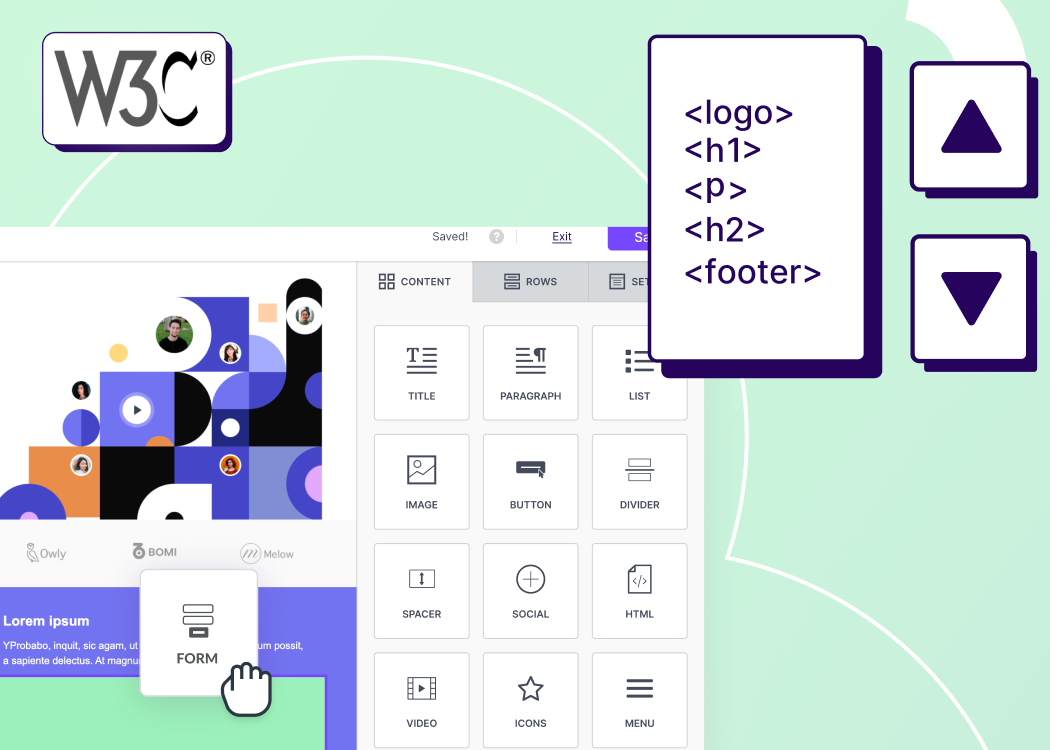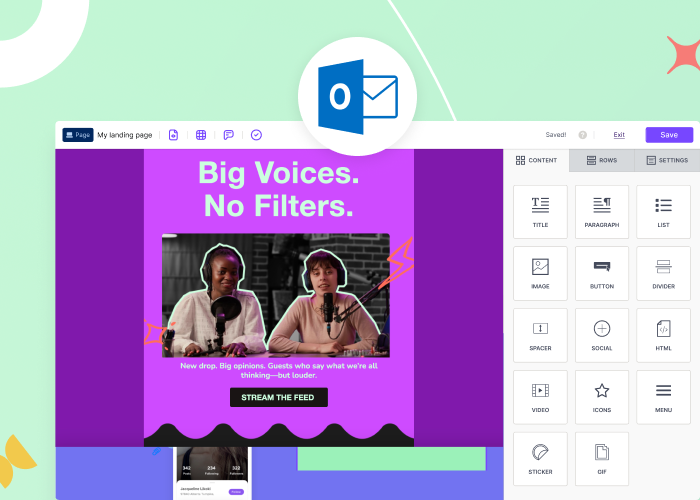Artificial intelligence is the topic de jour for SaaS and, frankly, for technology as a whole in 2024. Its impact is undeniable, as evidenced by a recent SaaS Academy report predicting that AI will be part of nearly every new software service by the upcoming year.
This revolution has reshaped the SaaS industry, making AI adoption a strategic imperative for businesses striving to maintain a competitive edge.
The Evolution of AI in SaaS
Artificial intelligence, as we know it today, has been in the making for a long time. The first AI-like program, the Logic Theorist, designed to mimic human problem-solving skills, was developed as early as 1956.
As computers became faster, more accessible, and more capable of data storage, Artificial Intelligence continued to develop, although it was still largely theoretical and used minimally in practical applications. That was until 2022 when ChatGPT by OpenAI was released.
ChatGPT combines advanced language model capabilities with conversational language. This allowed it to communicate with users naturally, like a chatbot. Still, unlike chatbots, ChatGPT doesn’t need the company to program scripts and answers for every question - ChatGPT can both find the information it needs and communicate that information well.
Since then, SaaS companies worldwide are exploring how they can integrate AI into their services to improve user experience, lower costs, and provide better results for customers and bottom line.
AI use cases for SaaS businesses
Artificial Intelligence transformative development in SaaS is due largely because of how versatile it is. Here are some examples:
- Personalization: AI systems can help SaaS business personalize their end users experience which in turn helps create a better user experience and foster a stronger sense of brand loyalty. A great example of this is how Netflix uses recommends users with movies and TV shows based on their previous preferences.
- Automation: You can use AI to automate parts of your SaaS application that were previously tedious or time-consuming, making your product more intuitive and beneficial to users. An example is how Salesforce Einstein AI automates data entry and predictive scoring to help Sales teams increase productivity.
- Cybersecurity: Artificial intelligence can help a SaaS application identify and prevent cyberattacks via threat detection and response automation. In return, this helps SaaS provide end users a higher level of security peace of mind.
- Customer engagement: AI is well known to be a great asset when identifying patterns in customer behavior and offering support in real time. As a result, SaaS application can use AI powered solutions such as Chatbots and Virtual Assistance to help customers solve issues as they arise or target power users to help increase revenue.
Benefits of AI in SaaS
Considering the myriad applications of AI in modern SaaS businesses, let's explore the significant benefits SaaS can derive from this technology:
- Improve decision-making: Data is a life source for many SaaS businesses - it allows them to know what their clients want and how to serve them better. AI allows businesses to thoroughly and efficiently analyze data to help them make informed decisions to improve their applications for end-users.
- Seamless user experience: AI can offer SaaS with more options to improve their user experience, customer relationships, and user engagement. Some ways to do this is via personalized and relevant support, tailored campaigns, and predictive insights.
- Operational efficiency: Artificial intelligence can take tasks that ordinarily take hours of error-prone work for a person and perform them in seconds. For SaaS companies, this means reducing costs, resources spent, and time which they can then invest in enhancing user experience.
- Scalability: Artificial intelligence makes tasks more efficient and automated, making it significantly easier for SaaS businesses to scale their operations as needed. Along with cost-effective and smoothly scalable growth, this offers flexibility for businesses whose needs might vary significantly from one month to the next.
With all these benefits, it’s no mystery why many SaaS businesses invest in AI. In fact, according to a CompTIA survey in February 2024, 22% of companies are already integrating AI use widely, while 33% of businesses are using AI in a limited capacity.
AI and the future of the SaaS industry
As we step into the future, AI's influence on SaaS is becoming increasingly profound, revolutionizing how businesses operate and deliver value to customers. While we may not have a crystal ball, there are a few reliable predictions for what we can expect to see from AI in SaaS:
- Increase in AI integration: With technological advancements ushering in new capabilities and applications, AI's omnipresence is imminent and imperative to remain competitive.
- Improved AI oversight: Discussions of AI oversight and ethics are gaining traction, with U.S. releasing its Blueprint for an AI Bill of Rights and the EU AI Act in the works. Within the next few years, we predict increase and improvements on regulations like these to continue to develop, requiring SaaS companies to manage regulatory compliance and transparency in their AI use.
- Shift in competitive dynamics: While there are many long-established leaders in the SaaS market, AI integration has make the industry so much more competitive that established leaders are facing challenges posed by smaller players. This transformative innovation has the potential to disrupt traditional market hierarchies significantly.
You can learn more about using AI for success in our most recent webinar where we asses the opportunities, challenges, and practical insights for integrating AI.
https://app.livestorm.co/beefreeio/navigating-the-future-of-saas-ai?
Leveraging AI in SaaS with Beefree SDK
Truthfully, only time will tell what the future will hold for AI in SaaS, yet by keeping an eye AI discourse, business can start learning how to integrate AI more sustainable and adaptively to ensure their relevance and competitiveness in the dynamic SaaS ecosystem.
Leveraging AI in SaaS through Beefree SDK opens up a world of possibilities for developers and businesses alike. By taking a buy approach (vs. build) not only can you enhance your SaaS application with advanced email design functionalities, but also leverage from Beefree SDK's OpenAI AddOn, a content generator for personalized and engaging campaigns, increasing user experience, engagement, and your applications usability and competitiveness.
If you'd like to see Beefree SDK in action and how it can serve your application, book a demo today!







